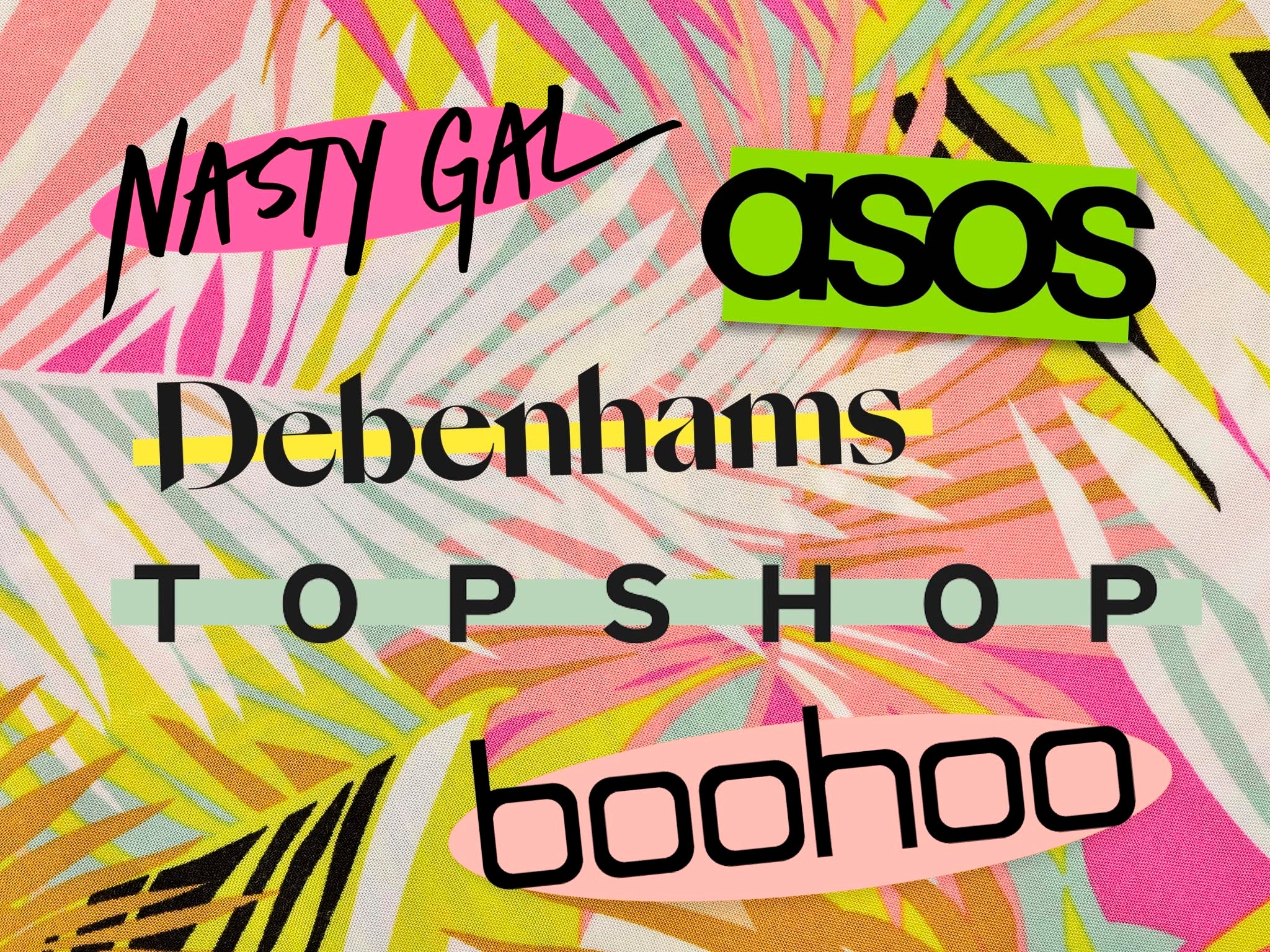If we lose high street shopping, we lose an experience of incomparable joy
As news breaks that Boohoo has bought Debenhams, and ASOS has bought Topshop, Olivia Petter reflects on whether shopping for pleasure may soon be a thing of the past


For those of us who came of age in the noughties, the Saturday shopping trip was a rite of passage and an activity of incomparable joy. Getting lost in a vast department store, skipping between beauty concessions and slinging countless items over gangly teenage arms between gossip-filled trips to Caffè Nero was the closest we felt to independence.
Whether or not any actual items were purchased was of low importance; the shopping itself was actually a small detail of the day. What was far more notable were the experiences the shops afforded, the bonding moments between mother and daughter as they spoke through changing room curtains, the friendships that crystallised as we switched items with the one our friend was trying on, and the catch-ups over super sweet hot chocolates at the end of the day, when everyone was exhausted.
It’s sad to think that this may all become a memory of a bygone retail era – and not simply because of the pandemic – but because such experiences have been rendered almost obsolete by ecommerce. On Monday, online retailer Boohoo announced that it had bought Debenhams for £55m - and reports are circulating that it’s also in talks to buy Burton and Dorothy Perkins. Meanwhile, ASOS has now purchased Topshop and Miss Selfridge from Sir Philip Green’s Arcadia Group, which fell into administration in November.
These are seismic but predictable industry moves, given how the pandemic has paved the way for online retailers to thrive (ASOS reported a 19 per cent rise in worldwide sales in October, while pre-tax profits spiked by 329 per cent), while bricks-and-mortar stalwarts, which were already struggling pre-pandemic, have seen their fate further cemented by being physically unable to open the tills.
In April, Debenhams called in administrators for the second time in two years, while the Arcadia Group brands have been dwindling since 2019, when the company was saved from administration after a voluntary arrangement led to 50 per cent cuts in rent, 23 store closures, and 520 job losses.
All the while, online retailers like ASOS, Boohoo, and their counterparts Pretty Little Thing and Nasty Gal, have continued to soar in popularity among Gen Z shoppers who, unlike millennials, grew up in a world with social media, smartphones and apps for absolutely everything, including clothes shopping. Brands like Topshop and Debenhams were never digital-first, and it began to show.
Boohoo and co are marketed specifically towards this demographic through strategic advertising, employing fashion influencers with young followers as ambassadors and partnering with popular reality TV shows, such as Love Island, for sponsorship deals. This makes online shopping the norm, something that has only naturally solidified during the pandemic given that non-essential retail has been closed for most of the last year.
Such industry shifts were inevitable, says retail expert Clare Bailey. “The digital revolution and the pandemic have simply accelerated the timescale,” she tells The Independent. “Big department stores and city centre shops haven’t adapted to contemporary consumer needs. While the pandemic has played a part in their demise, it certainly isn’t the only thing.”
That said, losing Topshop and Debenhams doesn’t necessarily mean the high street is dying. Yes, people might be doing the bulk of their clothes shopping online nowadays, but the demand for in-person shopping won’t peeter out completely. It just means that the experience is going to change; it’s time for innovation.
“Look at when Woolworths closed all 807 of its stores in 2008,” says Bailey. “It became online only and all but five of those 800 stores were put back into good use and were repurposed as new retail spaces that were more relevant to the modern shopper. The British high street is always reinventing itself, so it’s likely that whatever replaces Debenhams and other high street shops will be appropriate for the needs and wants of the community.”
But in a post-pandemic hyper-digitised universe, what will those needs and wants be? And how will they translate to a real-life shopping experience, if at all? When non-essential retail reopens again in the UK, Bailey expects there to be a resurgence in real-life shopping trips.
“People will be craving the social interaction that comes with visiting shops in-person,” she says. But recent data suggests they won’t necessarily be heading to the local city centre. “Over the last few years, research has increasingly found that, if they aren’t shopping online, people feel much more connected to local independent businesses, such as boutiques. They appreciate the proximity to home, having fewer queues, and the authenticity that comes with that experience.”
This feels more relevant now than ever before, when brands are under constant scrutiny for their ethical and sustainability practices. Brands like Boohoo and Pretty Little Thing are constantly criticised for perpetuating fast fashion culture, but their stratospheric success would suggest that shoppers are inclined to turn a blind eye when it comes to online purchases. The same cannot be said for physical shops, which, nowadays, need to offer something more in order to be deemed valuable. Take Harrods, where crowds gathered en masse on the first post-lockdown weekend in December. Sure, they might have been heading to London’s iconic department store to pick up a £15 tin of caviar, but the more likely reason is that, after four weeks in lockdown, they simply wanted somewhere nice to go.
In some ways, a transition to this way of shopping – one that feels more indulgent and bespoke – would reflect the industry shifts we’ve seen in the publishing world, with mid-range titles like InStyle and Teen Vogue going online-only, while those at the upper echelons (think Vogue, GQ and Vanity Fair) are investing more into their print offerings – glossier paper, coffee table-worthy covers – in order to provide a higher-value and more impactful reading experience that cannot be replicated online.
“It’s about the value of scarcity,” explains Bailey. “And while big department stores have not necessarily adapted very well to the times, the hole that they leave in the industry makes way for something more relevant.”
That’s the thing. As much as I cherished my shopping experiences as a teenager, they were very much of their time. Today, I would be far more likely to spend an afternoon perusing the rails in my local boutique shop or vintage store, where one-off items require inspection and shop owners are able to talk through provenance.
Meanwhile, those giant, conglomerate department stores, where the clothes are tightly packed together and mass-produced, have somewhat lost their appeal. Of course, I’ll shop online, too. But only for the boring items that I know I need (underwear, socks, tights). As for the exciting ones that I probably don’t, you’ll find me shopping in real life as soon as the pandemic allows.
Join our commenting forum
Join thought-provoking conversations, follow other Independent readers and see their replies
Comments

Bookmark popover
Removed from bookmarks